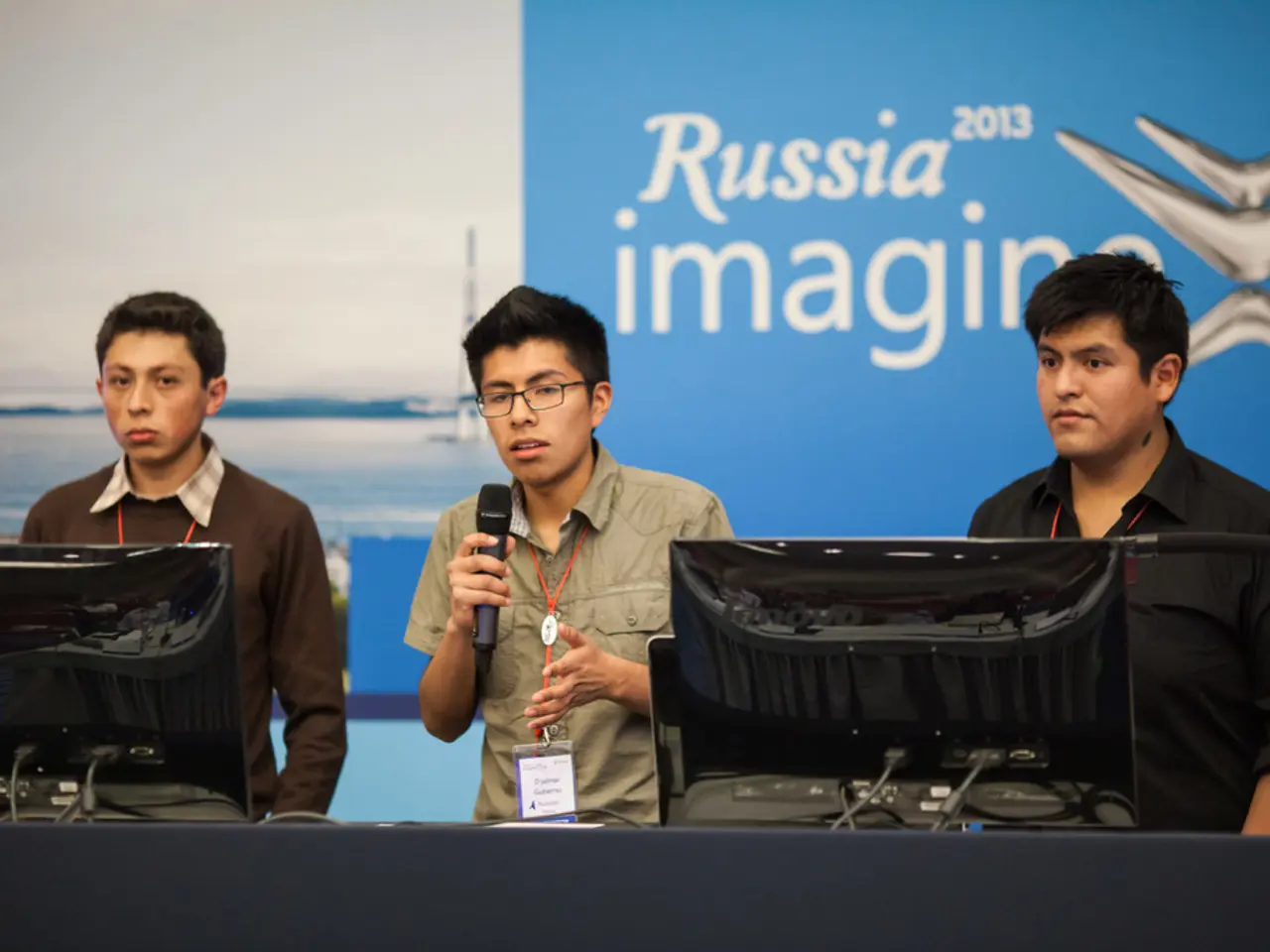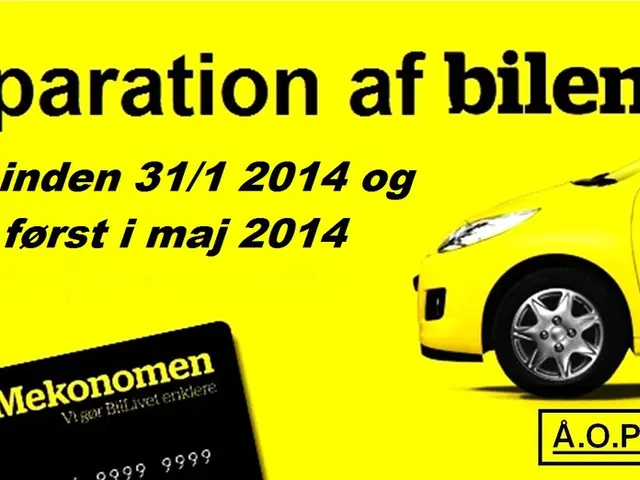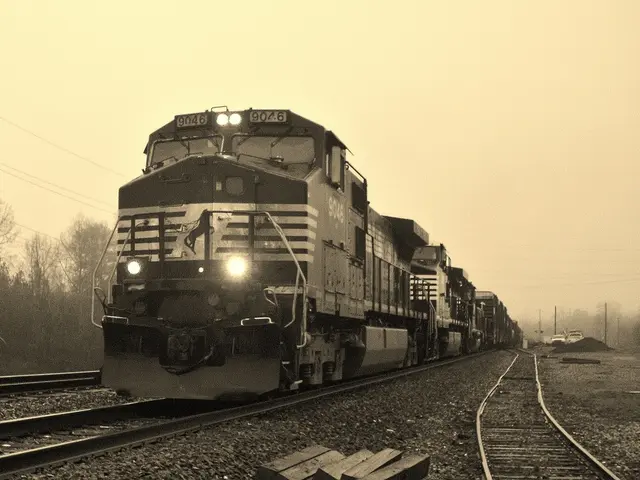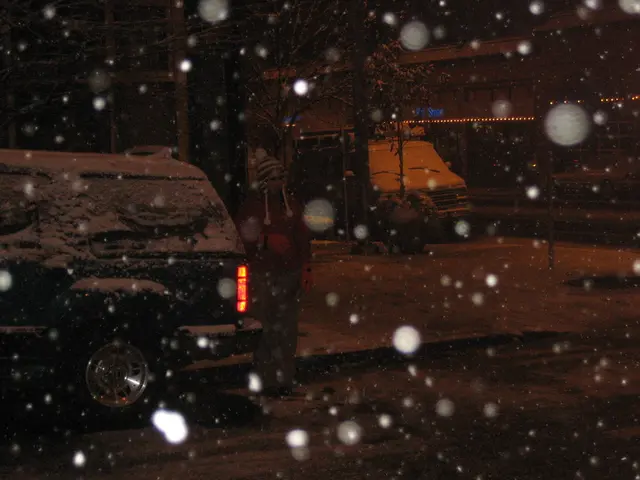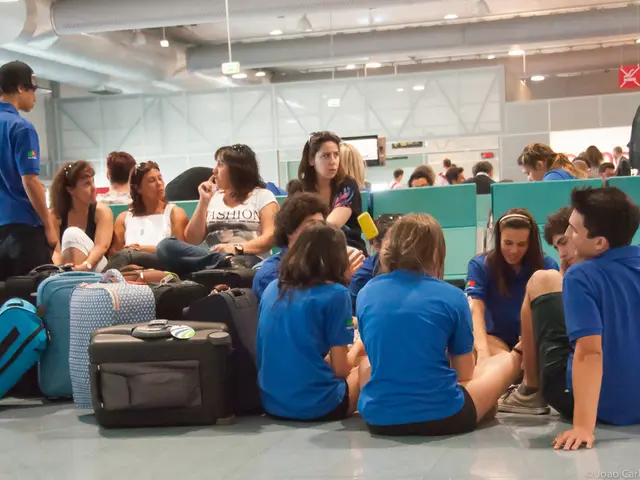Jäger rejects proposal for two-sided encounters
In the ongoing conflict between Ukraine and Russia, NATO is playing a significant role in supporting Ukraine's self-defense without committing combat troops directly on Ukrainian territory.
According to the Moscow-appointed governor, a Ukrainian attack has caused power outages in parts of the Saporischschja region. Meanwhile, Ukraine accuses Russia of selling stolen Ukrainian wheat to 70 countries, including Egypt, Turkey, and Iran. In response, the Ukrainian military has reportedly shot down 62 Russian drones and one missile since last evening.
Russia has also launched a drone attack on the southeastern Ukrainian region of Odessa, sparking a major fire at a fuel and energy facility, according to Ukrainian authorities. This comes as the Kremlin strongly rejects any NATO troop presence in Ukraine, viewing NATO military infrastructure expansion as a key conflict driver.
Current discussions and proposals regarding potential NATO military involvement in Ukraine focus primarily on enhanced support short of direct NATO troop deployment on Ukrainian soil. NATO allies are increasing lethal aid including air defense, ammunition, and military equipment through mechanisms like the Prioritised Ukraine Requirements List, reflecting significant but indirect military assistance.
NATO defense chiefs are holding candid talks about security guarantees for Ukraine to support a peace agreement, exploring what commitments—such as weapons provision, training, and assurances against future invasion—could be offered without direct combat involvement. There's a European-led initiative considering a "deterrence force" operating deeper inside Ukraine, presumably to strengthen local defense capabilities rather than acting as an overt occupying NATO force.
NATO and Ukraine are collaborating on developing low-cost defensive technologies to counter sophisticated Russian weapons like glide bombs and fiber-optic guided drones, indicating a joint effort to enhance battlefield edge without committing NATO forces directly to combat operations on Ukrainian territory.
However, the risk of escalation is a concern, and no formal decision to deploy NATO troops in Ukraine has been made. Military expert Ralph Thiele suggests that Germany should not shy away from a possible peacekeeping deployment of the Bundeswehr in Ukraine, but the Bundeswehr must be urgently reinforced. Britain is reportedly ready to send soldiers to Ukraine to secure a potential peace, but not near the Russian border.
In a Russian attack on the northern Ukrainian region of Sumy, at least 14 people were injured, according to Ukrainian reports. The White House comments on possible US support for European security guarantees to Ukraine, with air support being an option and a possibility.
Despite ongoing efforts, the peace in Ukraine has not moved closer, according to political scientist Thomas Jäger. Green politician Anton Hofreiter does not consider a quick peace settlement in Ukraine realistic and criticizes that European states are supporting Ukraine too slowly and showing too much weakness.
In international diplomacy, US President Donald Trump has discussed Ukraine with Hungarian Prime Minister Viktor Orban, and they reportedly discussed Ukraine's talks with the EU about joining the union and the possibility of a future meeting between Ukrainian President Volodymyr Zelenskyy and Russian President Vladimir Putin taking place in Budapest.
Amidst these complex geopolitical dynamics, the future of Ukraine and its relationship with NATO remains uncertain, with the hope that increased support and dialogue will lead to a lasting peace.
Read also:
- United States tariffs pose a threat to India, necessitating the recruitment of adept negotiators or strategists, similar to those who had influenced Trump's decisions.
- Weekly happenings in the German Federal Parliament (Bundestag)
- Southwest region's most popular posts, accompanied by an inquiry:
- Discussion between Putin and Trump in Alaska could potentially overshadow Ukraine's concerns
